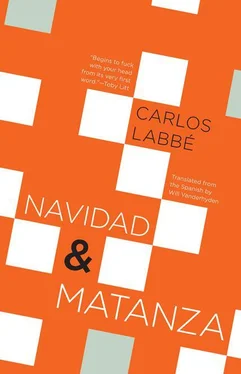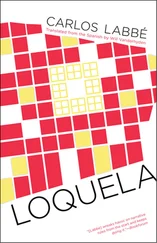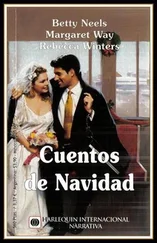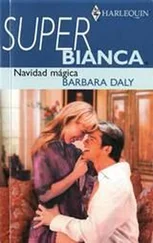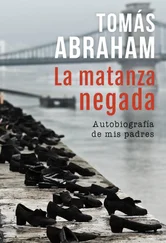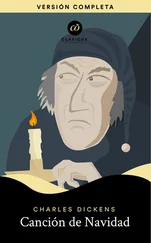I dropped the photographs. I thought about the odd grammar Viernes used in his farewell email: I’m not even grateful that I have met you by chance. I realized that if I’d been lying on the sand at the beach all this time, I’d be cold. I stretched again. I saw the girl coming back toward me from the street. Her hair messy, she carried a bucket full of water, and one towel was hanging over her shoulder. God, how I love her. I think about all the names I’ve given her in all the things I’ve written. I also think about the emptiness here in my bedroom, without fear or hope, without ever having been touched by anyone, not even propositioned by anyone, except by Sabado; but she was drunk, that’s another story and I wasn’t myself. I gathered the photos into a pile. I prepared myself to stop searching, to stop searching for her. I know where I am — I said to myself as I stood up — when I imagine that nocturnal beach, immense, empty of human beings. I was wrong, all the same. The girl, the child — Alicia — had started to build sand castles on the beach. Anxiously I yelled to her: The tide is rising.
I STOOD UP QUICKLY and went over to the table where Alicia Vivar had been doodling with a pencil in a notebook with yellow pages. I looked into her eyes. Her childish face held my gaze with the kind of expression that precedes a sigh and tears, or an outburst of mocking laughter. She’d been present throughout my whole conversation with the man from the service station, in the Miriada ; she didn’t need an explanation. We’d slowly gotten drunk off of drinks she’d brought us and, as the night went on, while she replaced my empty glass with a full one, she’d been able to observe how both my general and specific questions about Boris Real, about hadón, about Juan Carlos Montes, about the Transensorial Celebration, and about the disappearance of the Vivar siblings might be summarized in a single, repeated question: And Alicia? And Alicia? And Alicia?
It was already early morning. Crickets and frogs competed to fill the space in the darkness — what in the city we call silence — with their songs. I reached out my hand and took her by the wrist. Alicia let the pencil fall and gave a little cry. I asked her: When? She said: Tomorrow, here. Her eyes left mine, focusing on something behind me. Was someone else there besides Alicia Vivar and myself? I turned around instinctively: I’d forgotten him. The man from the service station, drunk and furious. You will not take her, was the last thing I heard. Then an intense blue spark, like a short circuit in a place without electricity, and everything went black. I’m dead, I thought. But before that happened, I’d glimpsed the arm of the man from the service station drawing back so he could smash his fist into my face. I’m not dead, because I hurt, I told myself the next morning. I was in my car, at the service station, vomiting.
I WALKED TO THE service station, turned on the spigot, and drank and drank. My head throbbed so much I felt it belonged to somebody else. When I washed my face my cheek began to burn. I called to the man from the service station a few times, but no one was there. The highway was empty and the day cloudy. A bag was being carried slowly along by the breeze. I called out again in vain. Some sparrows flew toward the iron roof of the cigarette stand. The strange thing was that the vending machines were on and the chain that normally locked off access to the service station at night or during lunch hour was lying on the ground. Someone had brought me there, parked my car, and left without hurting me too badly or providing an explanation. Despite the fact that I knew what I knew about the disappearance of Alicia Vivar, neither the man from the service station, nor Boris Real, nor Juan Francisco Vivar, had taken advantage of my drunkenness to silence me. It was as if this individual wanted me to be healthy and safe in my car, ready to go write the story he’d told me. I got in the car, started the engine, and turned on the radio. An old American song, “Memories Are Made of This,” was playing. I whistled along until the song ended. I thought about what the man from the service station had said the night before in the bar, as a truck went by at full speed on its way to San Fernando. On the radio, a woman’s voice began to tell the news. It was two fifteen in the afternoon on the first day of March.
I realized that I still had the tape recorder. The tape was there too.
The assignment — or my whim, if you like — was finished: I could piece together what happened to the Vivars that summer day in 1999. The story would exemplify the double standard at the heart of appearances and disappearances of Chileans, but none of this sounded right to me. The dramatic effect was too perfect. The pieces fit with suspicious ease: the perverse executive, the hedonistic musician, the tormented nymphet, the international orgy, the mysterious drug. A love story about a provincial man and underage girl from the capital. Then at last, I remembered Alicia Vivar’s words: Tomorrow, here. I turned off the radio, started the car, and went back to Matanza.
I parked on one side of the small plaza. A bunch of kids were milling around in front of a man selling cotton candy. I figured it was the novelty of summer. I went into the Miriada looking for the apron that Alicia had been wearing the night before, but in her place I found a fifty-something-year-old manager, running a damp cloth across the surface of the bar. She asked me if I wanted breakfast. In the corner, two old men were disinterestedly watching a daytime television series, sucking down bowls of soup. I sat. I ordered a sandwich and a mineral water. After fifteen minutes, when the manager brought out paper napkins, mustard, and ketchup, I stared at her. I didn’t know if I should talk to her about Alicia. Whether or not I’d be able to communicate with her. In the end, I asked her what time the younger waitress started working. The manager smiled and exclaimed: The womanizer has been bitten by a spider. A while later, as she brought me a coffee, I asked her directly about the waitress named Alicia. The woman was taken aback at my insistence. No waitresses work here, just me. Sometimes the old man, when he’s not drinking.
The hangover had consumed my patience. I took out a bill, placed it on the table, and looked her in the eyes: Last night a woman named Alicia was working. One of the men in the corner stood up and leaned on the bar next to me. Last night nothing , insisted the woman. She was the only person who worked there, and she didn’t have to explain herself to anyone. It’d be better if I just left; this was not a place to try and pick up women.
I walked out into the plaza. It was five in the afternoon; Matanza’s infamous wind was blowing. I wanted to go back to my apartment in peace, forget about the Vivars, sleep calmly. In a couple of days the story would be written. The strange feelings would be forgotten. Once written, the truth about the parts played by Alicia and Boris Real would be reduced to those of characters in a book (or worse, in a journal), and Matanza and Navidad would become exotic towns on postcards from provincial Chile.
Before going back to Santiago — while buying a postcard that depicted a fisherman smiling on the cold, dry beach, under a white sky — I randomly overheard the conversation of a man working in the market and a woman, sitting on a wicker stool, weaving. The man told her that he’d finally be able to pay off a debt because he’d come into some unexpected money. A few days ago, while he was walking with Violeta on the beach toward the cove, “Boris” had approached him and asked if his daughter, who was shivering because she’d just come out of the water, would be interested in becoming an actress. How random, the woman said. Boris told him that at the school in Navidad they were going to be putting on a play at the beginning of the school year. And Violetita would be perfect for the part. Imagine that, Violetita an actress, said the woman indifferently.
Читать дальше
